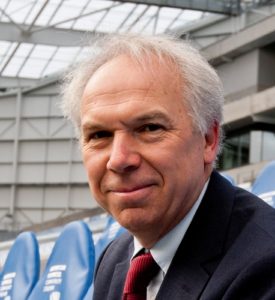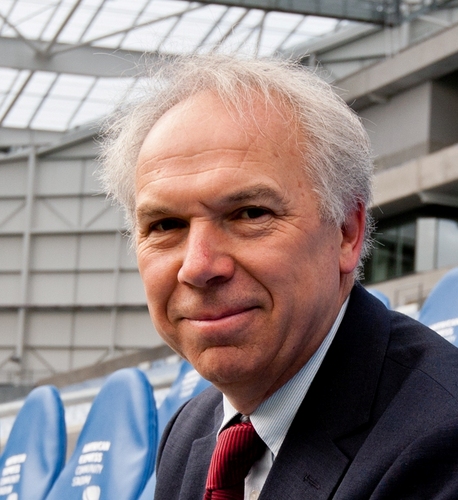A peer from Brighton has criticised the proposed privatisation of Channel 4 after it published its annual report, showing its strongest ever financial performance.

Lord Bassam of Brighton spoke out after the channel’s revenues topped £1 billion for the first time and it booked a record-breaking surplus of £101 million.
The government is seeking to privatise Channel 4, arguing that it will struggle to survive in a media landscape increasingly dominated by big streaming giants such as Netflix and has an overreliance on declining TV advertising to support its business.
Lord Bassam, who speaks for Labour in the House of Lords on culture, media and sport, questioned the government’s failed attempt to alter Channel 4’s report to “suit the privatisation agenda”.
Lord Bassam, also known as Steve Bassam, said: “Rather than trying to sex up Channel 4’s annual report to suit the privatisation agenda, is now not the time for the government to do a bit of a Lynton Crosby and scrape the barnacles off the boat and finally admit that neither the public nor for that matter the Parliamentary Conservative Party want Channel 4 flogged off?”
Australian political strategist Lynton Crosby famously advised David Cameron’s Conservative Party to “scrape the barnacles off the boat” to get the party ready for the next election.
Liberal Democrat peer Lord Addington asked: “Where is the Conservative principle of ‘if it ain’t broke, don’t fix it’? Or have we dumped that?”
Arts Minister Lord Parkinson of Whitley Bay responded that the government had every right to “make representations” for amendments to Channel 4’s report.
He added that the government has the “long-term interests of Channel 4 at heart” in its plans to sell the broadcaster.









Here we go again. A national issue which has nothing whatsoever to do with B&H apart from the fact that Lord Bassam is ‘of Brighton’.
I suspect the majority of people don’t know, or care, who owns Channel 4 so it’s hardly likely to be a hot topic of conversation. The much publicised massive salaries of some at the BBC is considered much more interesting in this material world because the licence payer is more involved and envious.